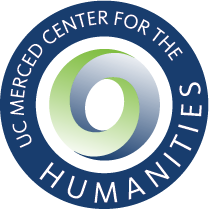
Kit Myers is an assistant professor of Critical Race and Ethnic Studies at University of California, Merced. Myers received his B.S. in Journalism and Ethnic Studies at the University of Oregon (2006) and earned his M.A. (2009) and Ph.D. (2013) in Ethnic Studies at the University of California, San Diego. He was also a UC Merced Chancellor’s Postdoctoral Fellow. Myers’ book manuscript is entitled Race and the Violence of Love: The Making of Family and Nation in U.S. Adoptions. He has published an article, “‘Real Families’: The Violence of Love in New Media Adoption Discourse,” in Critical Discourse Studies and a chapter in an edited volume called, “Creating (Un)equal Families in The Child Citizenship Act of 2000.” His research and teaching interests include race, family, and adoption; Critical Ethnic Studies; American Studies; Asian American Studies; race and law; and Critical Pedagogy. Myers is also a member of the Adoption Museum Project leadership team.
I am trained in ethnic studies, which means I have interdisciplinary training in analyzing historical and contemporary ways that the notions of race and ethnicity are tied to power and knowledge. More specifically, my research brings a comparative approach to the study of race, gender, family, and nation in relation to adoption and family in the United States. My book project, Race and the Violence of Love: The Making of Family and Nation in U.S. Adoptions, relationally interrogates the racial and gendered aspects of family formation in Asian, black, and Native American transracial and transnational adoptions. It seeks to move away from the good / bad binary of the transracial and transnational adoption debate and instead understand how notions of “love” and “violence” inform the ways we imagine and practice these types of family-making at the individual, institutional, and state levels. My work as a critical race and ethnic studies scholar intersects with American, gender and sexuality, legal, and adoption studies. I also have research and teaching interests in law and civil rights, which includes immigration, indigenous sovereignty, criminal justice/prisons, voting rights, segregation, sexuality, and reproductive rights.













